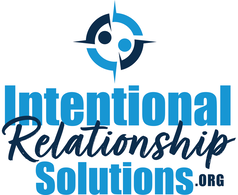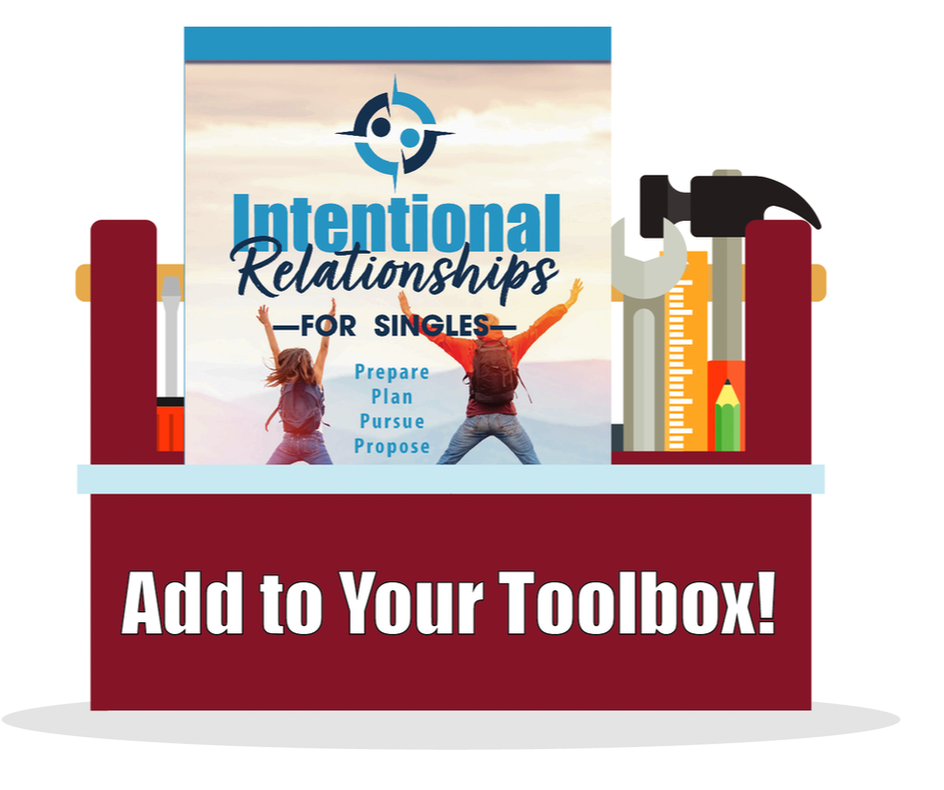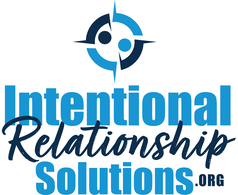Welcome Leaders |
Welcome Pastors |
Thank you for choosing to start and lead an Intentional Relationships for Singles Bible study.
We offer an extensive list of resources to help you be successful, be sure to sign up below to gain access.
We offer an extensive list of resources to help you be successful, be sure to sign up below to gain access.
|
To gain access to our FREE Leadership Online Guide including Facilitate/Host training, please fill out the request form to the right and you will be sent a password to access these materials. Be sure to also sign up for our FREE Leaders Webinar via Zoom.
Our Leaders Guide includes:
What's In Your Toolbox?Are you already offering DivorceCare, Griefshare, and Celebrate Recovery? Intentional Relationships is a great additional tool!
|
Leaders Guide Access RequestNote: All information is for the use for the Intentional Relationship Solutions only and we will not be sold or distribute to anyone else.
|
FAQ's
Q: HOW MANY WEEKS DOES THE STUDY LAST?
Intentional Relationships is designed to be taught in 12-weeks, depending on your goals and needs. You may opt to allow more time to teach different chapters, extending 12 weeks into 14-15 weeks. An additional week can be added at the start, offering refreshments, going through the curriculum, showing week 1 video, sharing your expectations of the class/involvement, and answering any questions folks might have. You can also finish by having an additional week that includes a dinner or celebration.
Q: HOW MUCH TIME?
Intentional Relationships is designed for a 1.5-2 hour class. However, depending on your facilitation style, if you break people into smaller groups, show the videos, do an icebreaker, etc., the time will vary. Remember, people are there to learn how to have healthier relationships, meet each other, build friendships, and gain accountability. So there needs to be a balance of presenting the materials and table discussion. Remember too that the book is the real teacher. Encourage them to read, journal and fill out the personal reflection questions so they are prepared for each class.
Q: WHO SHOULD BE IN MY CLASS?
Anyone who wants their relationships (family, friends, workmates, schoolmates, neighbors, romantic, former spouses, etc.) to improve, including those dating and engaged or who want to be. Depending on your church or ministry’s size and the possible number of attendees, you may opt to send out a survey using a program like “Survey Monkey” to gather information on who wants to attend the class. Note: If you are separated and not legally divorced, we recommend going through DivorceCare or similar first.
This survey should have questions such as their name, email, phone, age-range, whether they have ever been married, divorced (and how long), widowed (and how long), a single parent, have kids living at home, and what they are hoping to get out of the class. It is also helpful to remind them that it is a 12-week commitment. The point of this survey is to give you an overall idea of the backgrounds of your attendees, so you are better prepared when teaching the class.
Q: WHO SHOULD FACILITATE/LEAD THE CLASS OR GROUP?
It is a value to have those facilitating this curriculum to have some experience or a background personal hurt, brokenness, failed relationships, and examples of how they overcame these areas, however it is not required. We do recommend a co-facilitator, so you have extra support and offer a more extensive background of experience. If you will be using table hosts, set up a weekly connect time to discuss the lesson, direction for the group discussions, receive input, questions, or clarity for the lesson. Your team of host leading the discussions will be your ears and eyes for the study. See below for a table host description and expectations. For more detailed Facilitator and Host training, be sure to fill out the form at the top to gain access to this information.
Q: HOW SHOULD IT BE LED?
You can do this study in a small group of fewer than ten people, male and female or same-sex, and a larger format where you break people into smaller groups. You can have singles of all ages and backgrounds. You can also do this in your living room or online.
Q: WHAT ABOUT CHILDCARE?
It’s ideal to provide childcare during the Intentional Relationships study. Think about offering the class when other similar types of studies are presented. Be sure you have the necessary insurance, facilities, and staff training for childcare. Understand that when you allow children to wander in and out of the study, it causes a distraction; be sensitive to others who don’t have children.
Small Group: [Less than 10 Participants]
If you lead Intentional Relationships with less than ten people, you may opt to present to the entire group, allowing full group discussion of the material and group questions. Be sure to have people sit in a semi-circle or beside each other so they can see each other’s faces. Be aware, due to some of the topics and backgrounds of people, areas they are struggling with, you can quickly get off-topic or allow one person to dominate the time together. You may still opt to break people into groups of two or three for prayer.
Large Group: [More than 10 Participants and Breaking into Smaller Groups]
You can still present to your entire group for most of the lesson, opting for your smaller groups to dive deeper and/or discussing group questions.
Note: It’s ideal for people to stay in the same small groups each week to enhance transparency, build friendships, and gain accountability. You may opt to mix the groups by backgrounds, such as those divorced at one table or those widowed, never married, male/female, and age range. You can also mix them up, allowing more diversity in the discussion. Depending on the week, you can always do an icebreaker or exercise with people divided by life-stage.
Online Group: [Local or International]
Intentional Relationships is designed to be taught in 12-weeks, depending on your goals and needs. You may opt to allow more time to teach different chapters, extending 12 weeks into 14-15 weeks. An additional week can be added at the start, offering refreshments, going through the curriculum, showing week 1 video, sharing your expectations of the class/involvement, and answering any questions folks might have. You can also finish by having an additional week that includes a dinner or celebration.
Q: HOW MUCH TIME?
Intentional Relationships is designed for a 1.5-2 hour class. However, depending on your facilitation style, if you break people into smaller groups, show the videos, do an icebreaker, etc., the time will vary. Remember, people are there to learn how to have healthier relationships, meet each other, build friendships, and gain accountability. So there needs to be a balance of presenting the materials and table discussion. Remember too that the book is the real teacher. Encourage them to read, journal and fill out the personal reflection questions so they are prepared for each class.
Q: WHO SHOULD BE IN MY CLASS?
Anyone who wants their relationships (family, friends, workmates, schoolmates, neighbors, romantic, former spouses, etc.) to improve, including those dating and engaged or who want to be. Depending on your church or ministry’s size and the possible number of attendees, you may opt to send out a survey using a program like “Survey Monkey” to gather information on who wants to attend the class. Note: If you are separated and not legally divorced, we recommend going through DivorceCare or similar first.
This survey should have questions such as their name, email, phone, age-range, whether they have ever been married, divorced (and how long), widowed (and how long), a single parent, have kids living at home, and what they are hoping to get out of the class. It is also helpful to remind them that it is a 12-week commitment. The point of this survey is to give you an overall idea of the backgrounds of your attendees, so you are better prepared when teaching the class.
Q: WHO SHOULD FACILITATE/LEAD THE CLASS OR GROUP?
It is a value to have those facilitating this curriculum to have some experience or a background personal hurt, brokenness, failed relationships, and examples of how they overcame these areas, however it is not required. We do recommend a co-facilitator, so you have extra support and offer a more extensive background of experience. If you will be using table hosts, set up a weekly connect time to discuss the lesson, direction for the group discussions, receive input, questions, or clarity for the lesson. Your team of host leading the discussions will be your ears and eyes for the study. See below for a table host description and expectations. For more detailed Facilitator and Host training, be sure to fill out the form at the top to gain access to this information.
Q: HOW SHOULD IT BE LED?
You can do this study in a small group of fewer than ten people, male and female or same-sex, and a larger format where you break people into smaller groups. You can have singles of all ages and backgrounds. You can also do this in your living room or online.
Q: WHAT ABOUT CHILDCARE?
It’s ideal to provide childcare during the Intentional Relationships study. Think about offering the class when other similar types of studies are presented. Be sure you have the necessary insurance, facilities, and staff training for childcare. Understand that when you allow children to wander in and out of the study, it causes a distraction; be sensitive to others who don’t have children.
Small Group: [Less than 10 Participants]
If you lead Intentional Relationships with less than ten people, you may opt to present to the entire group, allowing full group discussion of the material and group questions. Be sure to have people sit in a semi-circle or beside each other so they can see each other’s faces. Be aware, due to some of the topics and backgrounds of people, areas they are struggling with, you can quickly get off-topic or allow one person to dominate the time together. You may still opt to break people into groups of two or three for prayer.
Large Group: [More than 10 Participants and Breaking into Smaller Groups]
You can still present to your entire group for most of the lesson, opting for your smaller groups to dive deeper and/or discussing group questions.
Note: It’s ideal for people to stay in the same small groups each week to enhance transparency, build friendships, and gain accountability. You may opt to mix the groups by backgrounds, such as those divorced at one table or those widowed, never married, male/female, and age range. You can also mix them up, allowing more diversity in the discussion. Depending on the week, you can always do an icebreaker or exercise with people divided by life-stage.
Online Group: [Local or International]
- Your first choice of attendees could be those already in your singles ministries, past Bible study groups, members of your church, etc. This way, you might have some history of their background. Attendees might know each other already, creating less work in establishing trust. If you are opening this up to those who don’t attend your church/ministry, try to limit it to those living nearby. This way, if you do some gatherings outside of your study, everyone will live locally.
- If you are posting a sign-up online, send them to a survey that requests extra information once they have registered. For example, how they heard about the study, demographics, what they hope to get out of it.
- Opt to have a pre-start connect time so that folks can get to know each other and ask questions. You can also use this time to restate your expectations, list the guidelines, etc.
- For online groups of over ten participants, set up breakout groups with at least (2) hosts to lead each week that can take turns or lead together. The same host guidelines (available in our free Leaders Guide section once you sign up at the top of this page). Check the online platform such as zoom, you are using for guidelines to see if you can set up your group with a permanent host and participants.
- Encourage participants to keep their videos on and refrain from doing other activities when in the study. This study requires discussion and engagement. If they are unable to do this, it might not be the best study for them. Download this free flyer on online etiquette that you can give out on the first night (or all nights).
- Closing your online group: You have the option to bring everyone back to the main group with a closing prayer or final discussion, comments, or have them close in prayer within their groups and then the option of coming back to the main group. There is an extra value in having them pray in their groups as it promotes transparency and accountability.
“Bearing with one another and, if one has a complaint against another, forgiving each other; as the Lord has forgiven you, so you also must forgive.” – Colossians 3:13 (ESV)







